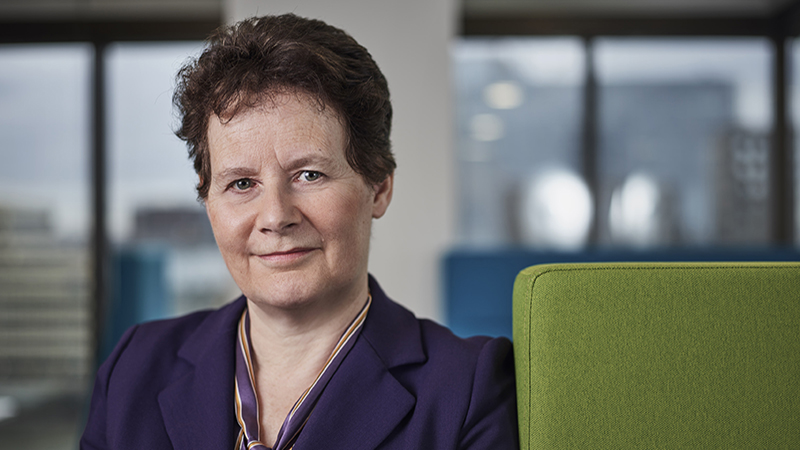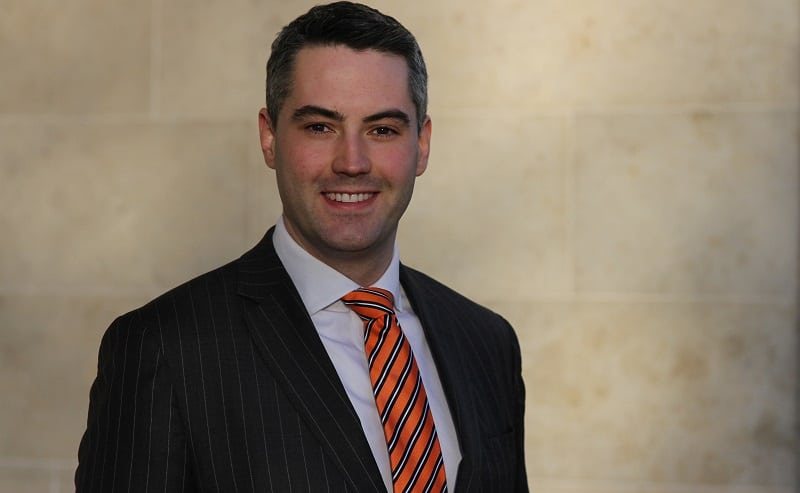Exchange-traded funds could be set to further shine a spotlight on active fund performance and charges as the Investment Association (IA) mulls adding passive versions of the products to its sectors.
The IA announced on Friday morning it is launching a consultation to add an initial 200 or so ETFs to its 37 sectors, which are used to assess comparable funds across asset class, investment strategy and geographical region.
The ETF committee had been looking at the introduction of the products into the sectors for about a year, said committee chair Adam Laird (pictured), who is the Lyxor head of ETF strategy for Northern Europe.
Laird admitted the move could ramp up existing pressure on active fund managers to outperform their cheaper passive counterparts. “The squeeze on closet trackers will continue. We see this as how the market continues with high active share, high-performance funds on one side and simple low-cost passives on the other,” he told Portfolio Adviser.
Eligible funds would be limited to ETFs that are UK domiciled or Ucits with HMRC reporting fund status, which essentially limits the universe to ETFs accessible by retail investors. The IA Global sector would see the largest influx of ETFs with 24 new products, while many others would only see only one ETF join their ranks.
In total, ETFs would be added to 23 sectors.
North America equity managers set for a tougher task
Looking at one-year cumulative performance, FE data suggested the affect on mean performance would be mixed across sectors.
In the North American Smaller Companies sector, just three ETFs would shift mean performance up 0.42% over one year, while 10 ETFs in the UK All Companies sector would have zero effect.
In contrast, the mean return of the China/Greater China would fall 1.28% on the inclusion of 10 ETFs. Asia Pacific incl Japan and Japan Smaller Companies would additionally see big falls of 1.35% and 0.95% respectively, albeit these are both due to the inclusion of just one fund.
7IM senior portfolio manager Peter Sleep said many active funds like to compare themselves to the sector rather than traditional benchmarks because sectors capture the drag from fund fees and cash drag from managing flows. “They already have tracker funds in the IA sectors, so adding ETFs is logical, I just wonder why it took so long,” Sleep said.
Quartile rankings would also be affected with the median performance in many sectors shifting up or down. Potentially ETFs would cluster around the sector median pushing active strategies to the extremes, Laird said.
The IA said fund rankings in the Europe Inc UK sector would be most disrupted with some fund rankings moving up 7% and others down 8% over a five-year view.
Plain vanilla ETFs
Chelsea Financial Services managing director Darius McDermott welcomed the addition of “standard” ETFs, such as a UK equity product to the UK All Companies sector. “ETFs are gaining popularity and are being more widely used, so it would seem a sensible and useful outcome.”
However, McDermott said more exotic products, like leveraged ETFs, would not result in like-for-like comparisons. Additional products in the already over-populated Specialist and Unclassified sectors would also be unwelcome, he said.
The IA paper indicated no ETFs would feature in these sectors in the initial cohort. There will also be no active ETFs.
Lyxor would seek to add several dozen ETFs of the “vanilla, straight-forward” variety, said Laird. Income products are the closest that Lyxor would likely get to adding smart-beta products to the sector, he said. The Societe Generale subsidiary currently does not have any funds in the IA sectors, despite its range of Sicav products.
There are approximately 2,000 ETFs available to UK investors, significantly larger than the 200 initially expected to join the IA sectors.
Laird said: “We expect that as this gets set in the number may expand. From the conversations I’ve had we’ve wanted to concentrate on the sensible mainstream options for now.”










